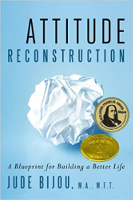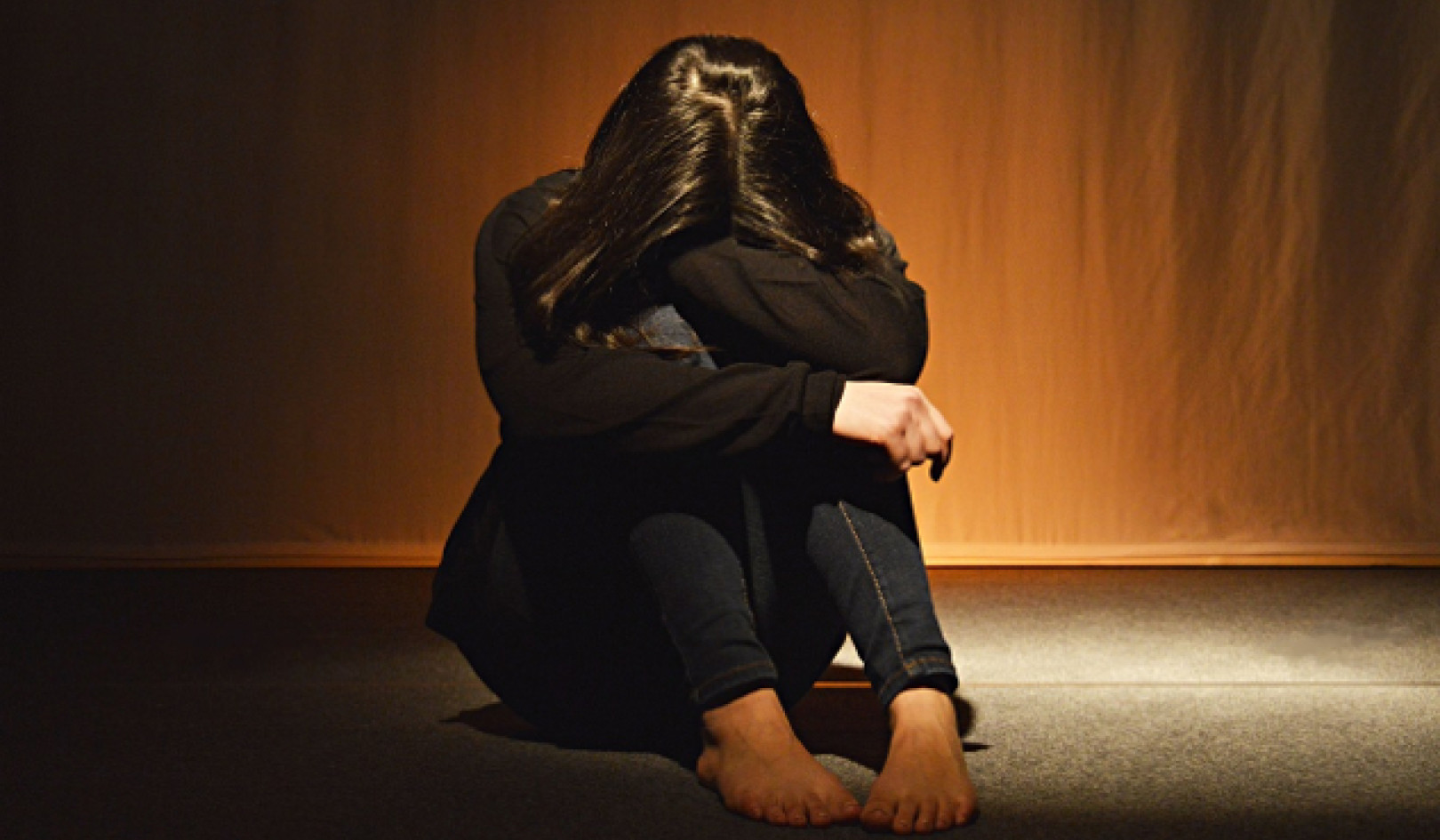
Image by patrick gantz
Narrated by Marie T. Russell
This month I'm going to discuss three topics that have at their roots our unexpressed fear: stress, taxes, and sleep, or lack thereof!
Got Stress?
What do you stress about? Pandemic? Taxes? Teaching kids at home? Work? Financially strapped? Relationships standoffs? Politics and the deep divide in our country? Fake news?
If you are usually at least mildly obsessed with something, anything, and find it hard to truly let it go, your thoughts have taken over and are now driving you. You aren't driving them. You don't have control over where your mind goes and can't stop the thoughts. You're in a hostage situation.
Regardless of our circumstances and our worries, the underlying emotion being triggered is FEAR.
1. Let It Out! Shake It Out!
Please do not shrug off my pitch. The best thing to neutralize the grip your fear has over you is to shiver and shake. It can seem too simple. Embarrassing. Foreign. The cultural message we received was to hide that we're scared.
We want it to magically go away. But, seriously, night and day, shiver, quiver, shudder, and tremble. Hard. Fast. With abandon. If you move the physical energy out of your body naturally (without words), your body and mind will recalibrate as you release the held-in physical tension.
What does a dog do when it’s scared? It shivers, quivers, trembles. What does our body naturally do when our survival feels threatened, whether it’s a traumatic event or unexpected bad news? Our hands become shaky and we shudder uncontrollably, our stomach clenches up, or we become paralyzed.
We need to allow our bodies to do what is natural. I know most people resist this idea. We feel like we need to “keep it together,” or even if it makes sense, it seems too silly or simple. But I have seen tons of clients in my thirty plus years as a psychotherapist, and have found this cure really works! So give it a try.
2. Rely on Basic Truths
The second thing to deal with anxiety/stress/worry, however your fear manifests, is to have a few truths that you can rely on, day or night, and do battle with your monkey mind.
Choose one below that resonates with you.
Everything is all right.
Everything will be all right.
Let go.
One thing at a time.
3. Stay Specific: One Thing At A Time
The third basic aid to minimize fear is to stay specific and deal with one thing at a time. In your thoughts and actions, break big seemingly overwhelming tasks into a series of little doable steps. Focus on one small thing you need to deal with right now. Praise yourself for completing each little step.
A final suggestion is to maintain perspective. Take a breath and remember how blessed you are. Enjoy the show, regardless of how stressful it feels. Stay focused on the goal -- "What is really important right now?" You'll feel more, joy, love, and for sure PEACE, if you implement some of these strategies.
If your fear is really up, you can feel really isolated, so please don't hesitate to reach out and ask for help. Even though it doesn't feel like it, we're all in the same boat.
Tax Time!
We all know that April isn’t just about Easter eggs, spring break, and the promise of summer. April 15 is creeping up and just about everyone knows what that means – TAXES.
But, as the saying goes, the only things for sure in this lifetime are death and taxes. Every taxpayer in the USA has some relationship with April 15th. Maybe we’re proud that we went to the accountant weeks ago or that we’ve already submitted the forms and are waiting for a refund. Maybe we’ve finally nailed down a workable system to keep all of our receipts in order and plugging in the numbers will be a slam-dunk.
But for many, this is a nail biting, anxiety-inducing time of year. The date is creeping up on us like a dreaded root canal. No way to get out of it, and there’s still so much to do!
Some of us do a blitz. Others whittle away at the gathering of information and calculate numbers to insert in the boxes.
Taxes and Fear
Fear is the natural reaction to threats to our survival. It's also related to issues about time and money so it’s no surprise, taxes can bring up gigantic amounts of fear. Fear of a possible audit. Fear that we owe the government some (or a lot) of our hard-earned money. Fear that we won’t get finished in time.
What’s the best thing to do? Shiver and quiver, of course. Because if we don’t move the physical fear energy out of our bodies, our minds have a tendency to distort the reality and make this project into a big overwhelming deal.
After shaking and shivering the fear out, the idea is to stay specific. Interrupt your worry thoughts. Don’t jump to worst-case scenario. Say over and over, “One thing at a time.” "I can do this.”
Then break the seemingly gigantic task into small doable units. Write down all the things you need to do to complete your forms, such as itemize your credit card purchases and list which ones are tax deductible, or gather all the necessary forms from your employer and financial institutions.
After completing your inventory, determine the item that you'll do first. Keep your focus on that until it's complete. Then choose the item to do next and repeat. Little by little you'll accomplish all the items and complete the job.
While no one (except an accountant perhaps or number nerds like me) loves to deal with taxes, it's one of the tradeoffs we get for living in this country. Focus on gratitude with each step, and watch how the process gradually becomes easier.
Sleeplessness
We have a problem here in the USA, and I’m guessing around the world as well. According to the CDC (Center for Disease Control and Prevention) over 9 million Americans take prescription sleeping pills. These pills are sedative medications that help slow down brain activity and make it easier for someone to fall asleep and stay asleep.
That’s about 4% of adults aged 20 and older, and personally I’d wager, given the stresses brought on by Covid-19 as well as tax-time, that the percentage is higher than that.
Educated women were the biggest users of prescription sleep aids, 5% indicating they used them, compared to 3.1% of the men.
Forty-eight percent of Americans report occasional insomnia, and 22% say they suffer insomnia every night or nearly every night. Insomnia is also more common in people over age 65, who are 1.5 times more likely to complain of insomnia than younger people. Use of sleeping pills apparently also increases with age, as 7% of people over 80 reported using them.
About 59 million sleeping pills were prescribed in 2012, up from 56 million in 2008. That’s a staggering amount of people (and a staggering amount of money going to the pharmaceutical companies who produce them).
A world-renowned sleep scientist, William Dement, says that sleep is “the most important predictor of how long you will live – perhaps more important than smoking, exercise, or high blood pressure. Studies have shown that not enough sleep increases levels of stress hormones and lowers levels of growth hormones, as well as the body's resistance to immunity."
Prescription sleeping pills are supposed to be for short time use but often people ignore the warnings. And that may have fatal consequences. Researchers found people who over-used prescription sleeping aids were nearly five times as likely to die over a 2½ year period than non users. Other side effects include sleep-eating, sleep-driving, and especially next-day grogginess.
Now I’m not saying that occasional use is not warranted, because we all know how crummy it is to operate on less sleep. We can get to the point of feeling slightly delirious and grumpy mood wise, and not as sharp in our decision-making, and physical coordination (we’re more accident prone).
Natural Solutions for Sleeplessness
Here’s the good news. According to Attitude Reconstruction, not being able to sleep is related to having too many unexpressed emotions, especially fear. We experience fear as feeling overwhelmed, anxious, confused, stressed, etc.
And if we realize that fear is a pure physical sensation and deal with it on a physical level, we can move the energy out of our bodies, allowing ourselves and our mind and spirit to naturally calm down.
As ridiculous as it sounds, peel yourself out of bed (or do it before getting into bed), and shiver, quiver, tremble and shudder, for not even two minutes. Up your spine, out your arms and hands, down your legs, and around your neck. Do it hard, fast, and with abandon, while just making sounds or thinking “It’s okay. I just feel scared. Everything will be all right.” Much to your amazement, you’ll find your body and mind will finally relax, and you’ll drift off to sleep.
According to a Time magazine article written in 2019, "instead of depending on sleep aids, people should try to address underlying stressors or health issues that may be contributing to sleep disorders. For better sleep, experts recommend minimizing screen and technology use at night, sleeping and waking at the same time every day and practicing relaxing behaviors, like reading or journaling, before bed."
I'd add, try shivering and shaking to move the physical energy. Give it a wholehearted try and I bet you’ll get a good night sleep.
©2021 by Jude Bijou, M.A., M.F.T.
All Rights Reserved.
Book by this Author
Attitude Reconstruction: A Blueprint for Building a Better Life
by Jude Bijou, M.A., M.F.T.
 With practical tools and real-life examples, this book can help you stop settling for sadness, anger, and fear, and infuse your life with joy, love, and peace. Jude Bijou's comprehensive blueprint will teach you to: ? cope with family members' unsolicited advice, cure indecision with your intuition, deal with fear by expressing it physically, create closeness by truly talking and listening, improve your social life, increase staff morale in just five minutes a day, handle sarcasm by visualizing it flying by, carve out more time for yourself by clarifying your priorities, ask for a raise and get it, stop fighting via two easy steps, cure kids' tantrums constructively. You can integrate Attitude Reconstruction into your daily routine, regardless of your spiritual path, cultural background, age, or education.
With practical tools and real-life examples, this book can help you stop settling for sadness, anger, and fear, and infuse your life with joy, love, and peace. Jude Bijou's comprehensive blueprint will teach you to: ? cope with family members' unsolicited advice, cure indecision with your intuition, deal with fear by expressing it physically, create closeness by truly talking and listening, improve your social life, increase staff morale in just five minutes a day, handle sarcasm by visualizing it flying by, carve out more time for yourself by clarifying your priorities, ask for a raise and get it, stop fighting via two easy steps, cure kids' tantrums constructively. You can integrate Attitude Reconstruction into your daily routine, regardless of your spiritual path, cultural background, age, or education.
For more info and/or to order this book, click here. Also available as a Kindle edition.
About the Author

Jude Bijou is a licensed marriage and family therapist (MFT), an educator in Santa Barbara, California and the author of Attitude Reconstruction: A Blueprint for Building a Better Life.
In 1982, Jude launched a private psychotherapy practice and started working with individuals, couples, and groups. She also began teaching communication courses through Santa Barbara City College Adult Education.
Visit her website at AttitudeReconstruction.com/



























